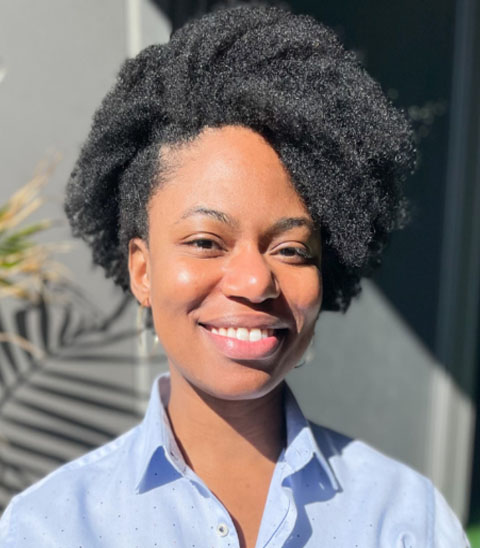Lynda Ikejimba, PhD, Medical Physicist
"Being a scientist at FDA has provided training and opportunities I couldn’t have imagined. It’s also given me the platform to lift as I climb, helping others gain access to resources too.” -- Lynda Ikejimba, PhD, Medical Physicist, Center for Devices and Radiological Health
Q1: What opportunities does FDA offer you that you couldn’t get elsewhere?
Lynda Ikejimba: The main difference is that science at FDA offers a unique blend of academic and regulatory environments. In terms of the academic aspect, there is the opportunity to work in a research lab with collaborative colleagues. There is also an emphasis on publishing as well as some support to attend scientific conferences. With respect to the regulatory aspect, scientists participate in the review and approval of medical devices on the cutting-edge of technology. I’ve been able to act as both a scientific consultant and the lead reviewer on submissions, an experience I likely would not get elsewhere. In addition to my main obligations, I have the opportunity to serve on committees that help shape the workplace to be more open and inclusive.
Q2: Why do scientists like you stay at FDA?
LI:: I stay at FDA in part because of the work–life balance but also because I feel supported in my research. When I joined FDA, there was a need for the technical expertise I brought from my graduate work. I had the privilege of directly applying my research and training. With support from our division, we’ve grown and innovated the technology, since we were able to focus on the regulatory science and not have to dedicate most of our time to securing funding. As a result, we’ve received numerous awards for our research, both within and outside the agency. For an early-career scientist, this is important for making a mark in one’s area of expertise. I’ve also stayed because I felt there was room to develop programs geared towards outreach, recruiting, and equity.
Q3: How do you use your science degree at FDA?
LI: I’m fortunate to use my science degree in all aspects of my work. Within the lab, I conduct research in my field of study, developing quantitative methods for evaluating breast cancer imaging systems. On the regulatory side, I use my training to evaluate submissions from medical device manufacturers for potential approval.
Q4: How is science conducted at FDA unique from science conducted at the National Institutes of Health, academia, or industry?
LI: The science at FDA is necessarily different from academia because FDA is focused on regulatory science. The research has a concrete, applied purpose within the realm of supporting regulatory decisions. In my area, this means developing tools in breast cancer imaging that can assist in conducting clinical trials that don’t require patients, thus easing the burden on device manufacturers and potentially shortening the timeline for approval of novel technologies.


